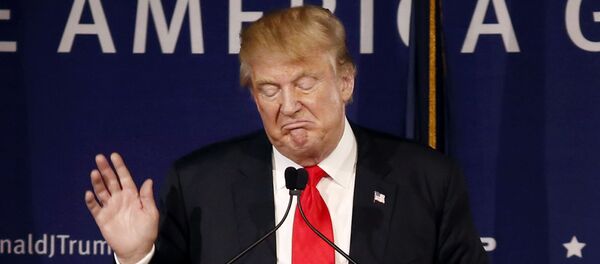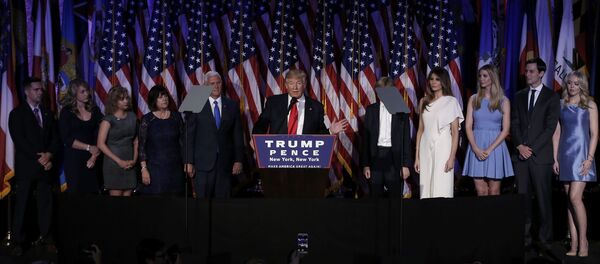Kristian Rouz — German automotive enterprise Volkswagen (VW) has landed an agreement with trade unions to cut roughly 30,000 jobs, out of which 23,000 jobs in Germany alone, by 2021 in order to save 3.7 bln euros in labor costs. The company has been facing mounting financial pressure due to its recent emissions scandals, resulting in substantial litigation expenses and the loss of market share. The money saved is poised to be reinvested in VW's electric vehicle division and R&D.
The company said its primary goals are to improve productivity by 25pc, and shift to the manufacturing of environment-friendly electric vehicles, as well as self-driving cars, the most recent media sensation. VW currently employs 610,076 workers globally; and is aiming to add only 9,000 job openings in its electric and self-driving car divisions.
"Volkswagen is facing big challenges: e-mobility and digitalisation need to be financed, new business models and mobility concepts must be promoted. In short: the Volkswagen brand is repositioning itself," VW's statement reads.
The massive layoff of 23,000 workers in Germany, however, will likely entail a substantial negative impact to employment on the federal level, affecting the quality and outlook on of life for many German families.
VW is planning for ‘mild' layoffs, with early retirements and non-replacement of workers that leave, in an attempt to mitigate the negative consequences of the layoff in Germany's highly-industrialised economy. The layoff will save VW some 3 bln euros in Germany, and another 700 mln overseas.
In the first nine months of this year, VW brand's operating margin narrowed to 1.6pc compared to 2.8pc during the same period of 2015. That happened because of the lower prices on most VW models compared to Audis and Porsches, and hence their greater affordability across various demographics in multiple markets. Also, the rise in car leasing this year somewhat made up for the declines in sales. However, this leasing expansion has its own limits, because it is also a part of the inflating consumer credit bubble. In the US, for example, car loans have ballooned beyond $1 trln this summer, with average delinquencies having advanced to 5pc, and up to 20pc in the subprime segment.
The fact that VW has reached an agreement with the unions to cut jobs is also hardly encouraging, as it might be seen as if the unions are abandoning the worker's best interest. The center-left government in Berlin, and the left-leaning unions at this point are putting the environmentalist agenda above the worker's interest of job security and guaranteed earnings, insurance and pension plans. Albeit German unemployment now stands at 4.1pc, economic growth is dismal, at 0.2pc in Q3, reflecting the lack of growth in prices and domestic consumption, likely a result of an unprecedented credit expansion of the previous years.
"With our future pact, that is our deal between unions and management, we're making a huge leap forward," VW chief Herbert Diess said.
Is that the future of high-tech and bloated budgets of environment-protection bureaus, but without self-sustainable and conscious workers and their families?
The situation is very similar to the one in US manufacturing, although not quite as dramatic: the US has seen manufacturing jobs evaporating for at least two decades, and German industrial production had been gaining momentum between 2000-2015. Weak global demand for manufactured goods, however, is now signalling hard times for German industries, and the environmentalist agenda makes the situation harder, and the challenges to everyday Germans more acute.
The negotiations between VW and the unions have lasted since June, and might have set a precedent for other German manufacturers to boost productivity via job cuts, jeopardizing job security and putting the stability of salaries and wages into question. The bigger question is, however, how will German workers react to the emerging trend in the next year's general election. Neighbouring Austria, for example, in April-May of this year has made a choice between the right-wing Freedom Party of Austria and the Greens, with a result so astounding is hasn't been announced yet and is due on December 4.
Such developments are making a case for a "German Trump" increasingly compelling.






